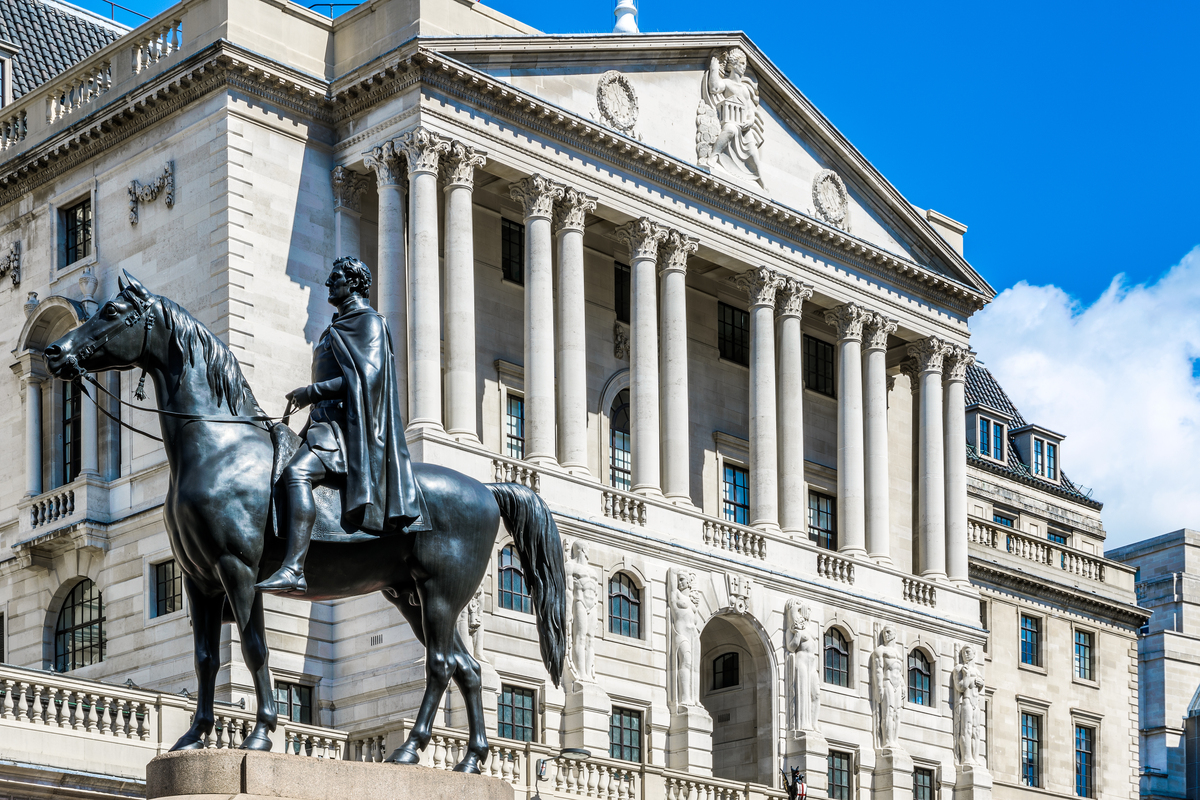Interest rates increased for an eleventh consecutive time
Interest rates in the UK have gone up for the eleventh consecutive time, increasing by 0.25% from four percent to 4.25%, the Bank of England have confirmed.

Senior Journalist, covering the Credit Strategy and Turnaround, Restructuring & Insolvency News brands.

Senior Journalist, covering the Credit Strategy and Turnaround, Restructuring & Insolvency News brands.
At a meeting, the bank’s Monetary Policy Committee (MPC) voted by a majority of seven to two increase interest rates, while two members preferred to maintain the bank rate at four percent.
The increase comes a day after the surprise rise in inflation, jumping from 10.1% to 10.4% in February, driven primarily by price rises in household services such as electricity and gas, as well as food and non-alcoholic beverages.
Following this news, and as is required when inflation moves away from the two percent target by more one percentage point in either direction, Bank of England governor Andrew Bailey wrote to chancellor Jeremy Hunt, explaining the reasons behind the rate increase.
In this he outlined that, while the committee voted to increase rates after it remains likely inflation - which has been increasingly driven by factors that are more domestic - will fall sharply over the rest of this year, although the extent to which domestic inflationary pressures ease will depend on the evolution of the economy.
In response, Hunt said he shares Bailey’s assessment that inflation has been driven by factors that are more domestic, stemming on a tight labour market.
Prior to this, economists had suspected the bank’s MPC would put a stop to the near 18 months of interest rate hikes. This is, however, the first time since June last year that rate increases have dropped below 0.5%.
Analysts now expect the rate to peak at 4.5% in the summer.
It follows yesterday’s announcement that US’s Federal Reserve said it would increase interest rates for the ninth consecutive time in a row, up from 4.75% to five percent – putting rates at their highest level since 2007, while the European Central Bank also raised its three main interest rates by 0.5% last week.
In response to the Bank of England’s increase in interest rates, StepChange’s head of policy Peter Tutton said:
“Another rate rise, alongside this week’s news of rising inflation, is the latest in a succession of body blows to household finances.
“Our latest research shows half of renters and more than one in three mortgage holders expect their housing payments to rise within the next 12 months. Most worryingly, of those facing a rise, one in four expects to be driven into problem debt because of it.’’
Hargreaves Lansdown’s head of money and markets Susannah Streeter added: "A banking curve ball has been thrown into the Bank of England’s already tricky juggling act, but for now the eye of policymakers is still firmly trained on catching inflation and bringing it under control. The hotter than expected temperature of consumer prices in February, and the tight labour market are cause for concern, amid worries inflation could still become embedded in the economy.
"It wasn’t a unanimous decision though, with the Monetary Policy Committee split on what to do, given how rapidly the sands have been shifting. The pound has climbed higher above $1.23 adding to gains already made amid widespread expectations of this rate rise.
"The knock-on effects of the banking scare are still hard to determine, and with lending criteria expected to be tightened and loans set to be harder to come by, a forecast deterioration in financial conditions is likely to be the equivalent to further interest rate rises in the months to come.
“Inflation was already expected to drop sharply by the end of the year to around 2.9% and if consumers and companies find it harder to access credit, it’s likely to be a fresh disinflationary force. So, in May policymakers are expected to press pause on rate hikes, as the lag effect of tightening across the economy comes into play.’’
Equifax UK’s chief data and analytics officer Paul Heywood, meanwhile, said:
“Less than two years ago, a 25-basis point hike to the base rate would have seemed a significant change for the credit sector; however, after eleven consecutive interest rate increases, today’s announcement will require an all too familiar and cautious response from both lenders and borrowers.
“While consumers and businesses across the nation would have hoped to see the Bank’s base rate decrease, this is a positive sign for borrowers. The Bank has confidence in the measures it has taken to reduce inflation, and in conjunction with the Chancellor’s comments last week, it appears the nation is headed in the right direction.”
“However, there is still a long way to go before cost pressures begin to ease. Lenders will remain on the lookout for signs of problem debt among vulnerable customers, and we encourage anyone worried about their finances should reach out to their provider for support.”
